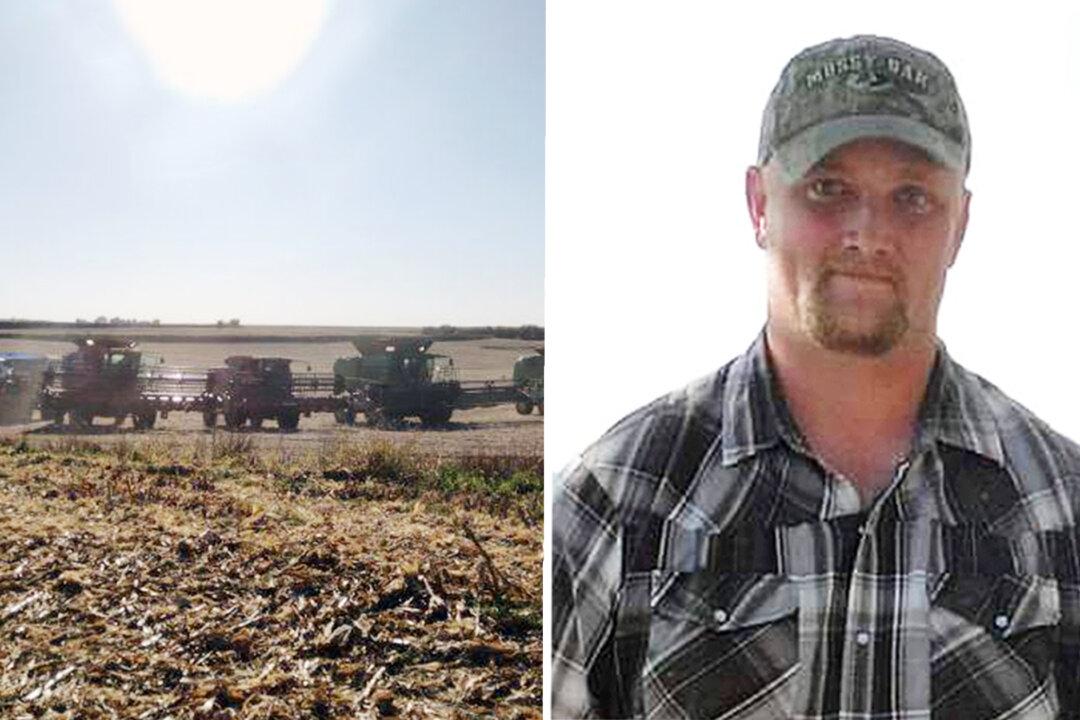More than 100 members of a tight-knit Iowa farming community came together after losing one of their own to harvest the crops he left behind.
Cole Vanatta, who managed more than 2,000 acres of row crops just south of Tabor, Iowa, with his father and grandfather, sustained a farming injury on Sept. 9 and died two days later. He was 36 years old and is survived by his wife and three children.





